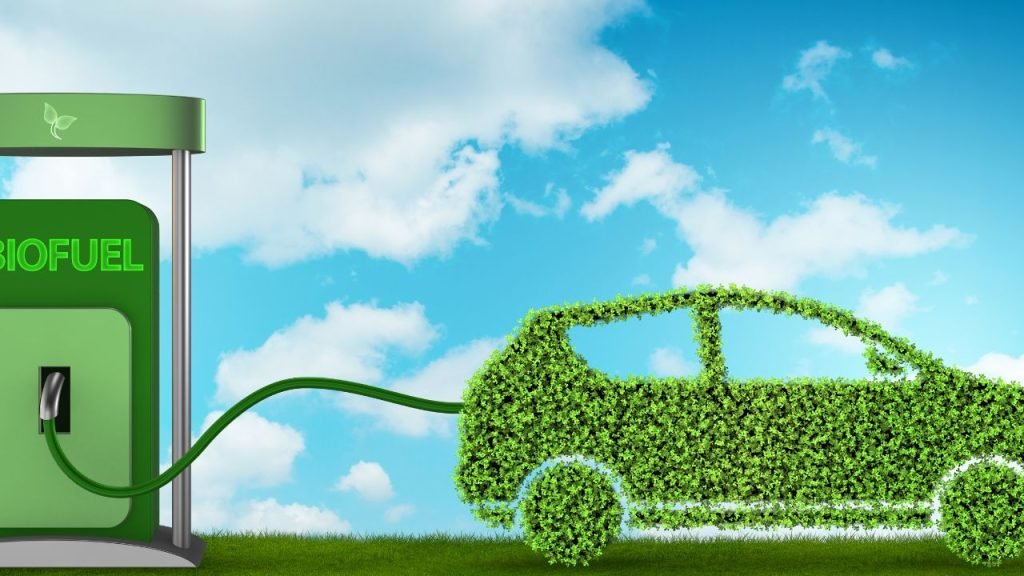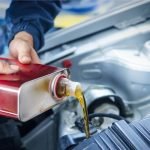Summer is a season of fun, sun, and road trips. Unfortunately, it is also a time when we tend to forget about the impact our cars have on the environment.
Car emissions are one of the primary contributors to air pollution, which negatively affects not only our health but also the planet we call home. Reducing car emissions during summer months is crucial in ensuring sustainable living and preserving the environment for future generations.
Carbon monoxide, nitrogen oxides, and volatile organic compounds (VOCs) are some of the harmful gases produced by vehicles that can lead to smog formation and respiratory problems. Additionally, cars produce greenhouse gases such as carbon dioxide that contribute to climate change.
It’s important to be mindful of these negative impacts and make conscious efforts to reduce them during summer months when we tend to use our cars more frequently. In this article, we’ll explore some common mistakes people make that increase car emissions and environmental impact during summer months while providing tips on how you can avoid them.
Table of Contents
Out with the Old, In with the New: Upgrading Your Air Conditioning System
Summer is here, and with it comes the hot and humid weather that we all dread. But before you turn on your car’s air conditioning system, you should know that outdated A/C units can harm the environment and waste fuel. Older systems tend to be less efficient and require more energy to operate, which in turn increases your car’s fuel consumption and carbon emissions.
Not to mention the added burden on your wallet from higher gas bills. So, what can you do about it?
One option is to upgrade to a more efficient A/C system that uses less energy while providing the same level of comfort. Look for models with high SEER ratings (Seasonal Energy Efficiency Ratio) which indicates how efficiently they convert electricity into cooling power.
Another option is to use alternative cooling methods whenever possible. For example, park in a shaded area or under cover when possible or use reflective windshield shades to keep your car cooler when parked outside for long periods of time.
The Pros of an Efficient Air Conditioning System
Investing in a new air conditioning system may seem like an unnecessary expense but think about it this way – not only will it protect the environment by reducing your carbon footprint, but it will also save you money in the long run. An efficient A/C unit will reduce fuel consumption and lower gas bills while keeping you cool during those hot summer months. In addition, some modern air conditioning systems come equipped with eco-friendly features such as solar-powered fans or systems that use recycled parts making them environmentally sustainable as well as cost-effective.
So if you’re still using an outdated A/C system in your car, consider these tips for upgrading or using alternative cooling methods when possible. It’s a small step towards protecting our environment while ensuring comfort during those summer road trips!
Stop Driving the Extra Mile: The Pitfalls of Short Trips
Summer is a great time for quick trips to the grocery store, the park, or to meet up with friends. Unfortunately, short trips can actually harm both your car and the environment.
When you start your car for just a few minutes at a time, your engine doesn’t have enough time to reach optimal operating temperature. This means that it burns more fuel and emits more pollutants than it would during longer trips.
Additionally, starting and stopping your car frequently can put extra wear on your brakes and tires. This not only harms the environment but also costs you money in repair bills over time.
To reduce emissions and protect your vehicle, try combining errands into one trip rather than making multiple short trips throughout the day. Plan ahead by making a list of everything you need to do or buy before heading out on the road.
Make Your Trips More Efficient with These Tips
One way to make each trip more efficient is by using GPS or map apps that help you find shorter routes between destinations. This can save you fuel and reduce emissions while also saving time on the road. Additionally, consider walking or biking for shorter trips whenever possible.
Another way to cut down on driving is by taking advantage of public transportation options like buses or trains. Many cities offer affordable public transit options that are much cheaper than driving your own car everywhere.
Consider carpooling with friends or coworkers who live nearby and work similar schedules to yours. By sharing rides, everyone saves money on gas while reducing their carbon footprint at the same time!
Neglecting Regular Car Maintenance
How Poor Maintenance Can Lead to Increased Emissions and Environmental Damage
Neglecting routine maintenance on your vehicle can have serious consequences for the environment. One of the biggest issues is increased emissions.
When your car isn’t running efficiently, it can produce more emissions than it would with proper maintenance. This is especially true for older vehicles that may not have modern emission control systems.
As a result, neglecting car maintenance can contribute to air pollution and other environmental problems. In addition, poor maintenance can also lead to leaks of oil or other fluids that can damage ecosystems and water supplies.
For instance, an oil leak from a poorly maintained engine can contaminate streams or groundwater near the road. So, maintaining your vehicle regularly not only helps reduce emissions but also helps prevent such ecological damage.
Tips for Scheduling Routine Tune-Ups, Oil Changes, and Tire Rotations
Fortunately, there are several things you can do to keep your vehicle in top condition and reduce its environmental impact. First and foremost is scheduling routine tune-ups that will help ensure all parts of the engine are working as they should be. Regular oil changes are also important; clean oil helps keep the engine lubricated and operating smoothly while reducing wear on parts which could cause more emissions over time.
Tire rotations could help extend tire life while ensuring consistent handling performance under all driving conditions – this maintains mileage efficiency by avoiding drag caused by worn out tires. By keeping up with these basic forms of regular maintenance you’ll be helping create a cleaner environment while extending the overall lifespan of your vehicle at the same time!
The Dangers of Excessive Idling
As convenient as it may be to keep the engine running while waiting in traffic or picking up a friend, excessive idling can have serious consequences for both your car and the environment. When the engine is left on without moving, it continues to produce emissions that contribute to air pollution. Even just a few minutes of idling can release harmful pollutants into the air, which can lead to respiratory problems and other health issues over time.
In addition to posing health risks, excessive idling also wastes fuel and reduces your car’s efficiency. This means you’ll end up spending more money on gas than you need to, and your car will produce more emissions than necessary.
To combat these negative effects, it’s essential to turn off your engine whenever possible while parked or waiting in traffic. By doing so, you’ll reduce emissions and save money on gas, all while helping protect the environment for future generations.
Tips for Reducing Idling Time
If you want to reduce your idling time but aren’t sure how to get started, there are several simple steps you can take. One effective strategy is planning ahead and avoiding routes that are likely to have heavy traffic or long waits at stoplights.
By choosing alternative routes or leaving earlier than usual, you can avoid wasting time stuck in traffic and decrease your overall idle time. Another way to reduce idle time is by turning off your engine whenever possible when parked or waiting for someone else.
Whether you’re waiting outside school or sitting in a drive-thru line at a fast food restaurant, turning off your engine will help minimize both fuel consumption and pollution levels. Consider investing in newer cars that automatically turn off their engines in certain situations like when stopped at red lights or stuck in heavy traffic.This technology makes reducing idle times easy without any extra thought required from drivers.
By following these tips, you’ll be able to significantly reduce your car’s emissions and environmental impact while also saving money on fuel costs in the long run. It’s a win-win situation that benefits both you and the planet.
Using low-quality gasoline
Fueling up with subpar gasoline can harm your car’s performance
When it comes to fueling up your vehicle, you might be tempted to choose the cheapest option at the pump. But filling up with low-quality gasoline can actually cause harm to your car’s engine and decrease its overall performance. Subpar gasoline may contain impurities that can wear down engine components over time, leading to costly repairs down the road.
Additionally, poor fuel quality can cause build-up in your engine and negatively impact your gas mileage. This means you’ll be spending more money on gas in the long run if you don’t choose high-quality fuel options.
The environmental impact of using low-quality gasoline
Not only does using low-quality gasoline harm your car’s performance, but it also harms the environment. Cheaper fuels often contain higher levels of harmful chemicals and emissions which are released into the environment when burned in your car’s engine.
These emissions contribute to air pollution and can have negative impacts on public health by causing respiratory problems and other illnesses. By choosing high-quality fuel options, you can reduce harmful emissions from your vehicle and help protect both the environment and public health.
Tips for choosing high-quality fuel options
To avoid these negative effects of using subpar gasoline, make sure to choose high-quality fuels from reputable stations whenever possible. Look for labels like “Top Tier” or “Certified” which indicate that the fuel meets certain standards for quality and cleanliness.
It’s also important to pay attention to octane ratings when choosing a fuel type – higher octane fuels are typically cleaner burning and better for both your car’s performance and the environment. While these higher quality fuels may be slightly more expensive than their lower quality counterparts at first glance, they’ll save you money in repairs down the line while reducing environmental damage from your vehicle.
Conclusion
Reducing car emissions and environmental impact during summer months is crucial for the health of our planet and ourselves. By avoiding common mistakes such as using outdated air conditioning systems, overusing the car for short trips, neglecting regular car maintenance, idling excessively, and using low-quality gasoline, we can significantly reduce our carbon footprint. One of the easiest ways to reduce emissions is by upgrading to a more efficient air conditioning system or using alternative cooling methods such as rolling down windows or using a fan.
Planning ahead and combining errands can also help reduce unnecessary driving and fuel consumption. Regular car maintenance not only reduces emissions but also ensures that your vehicle is running efficiently.
Turning off the engine when parked or waiting in traffic can also significantly reduce emissions. Choosing high-quality gasoline options can improve both your car’s performance and environmental impact.
By implementing these simple steps into our daily lives, we can make a positive difference in reducing our carbon footprint during summer months. Let’s work together to preserve our planet for future generations!






